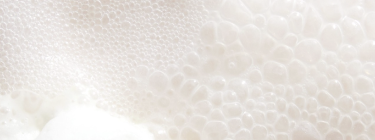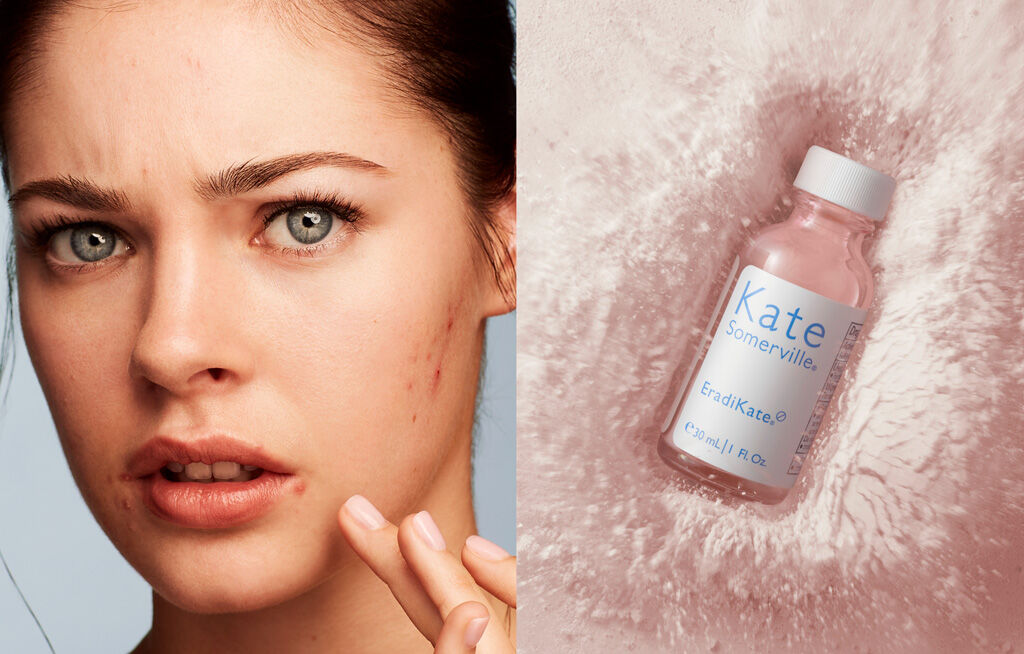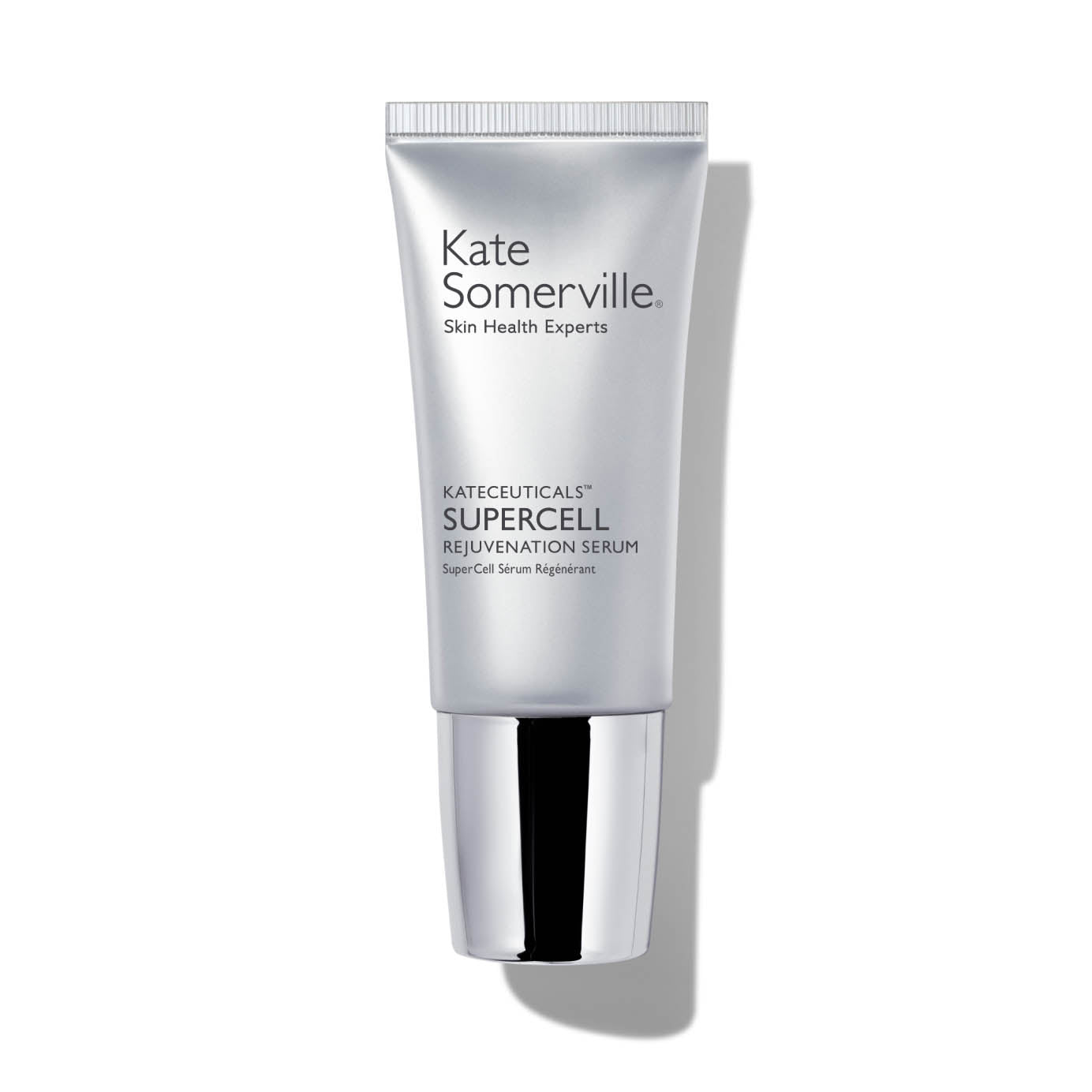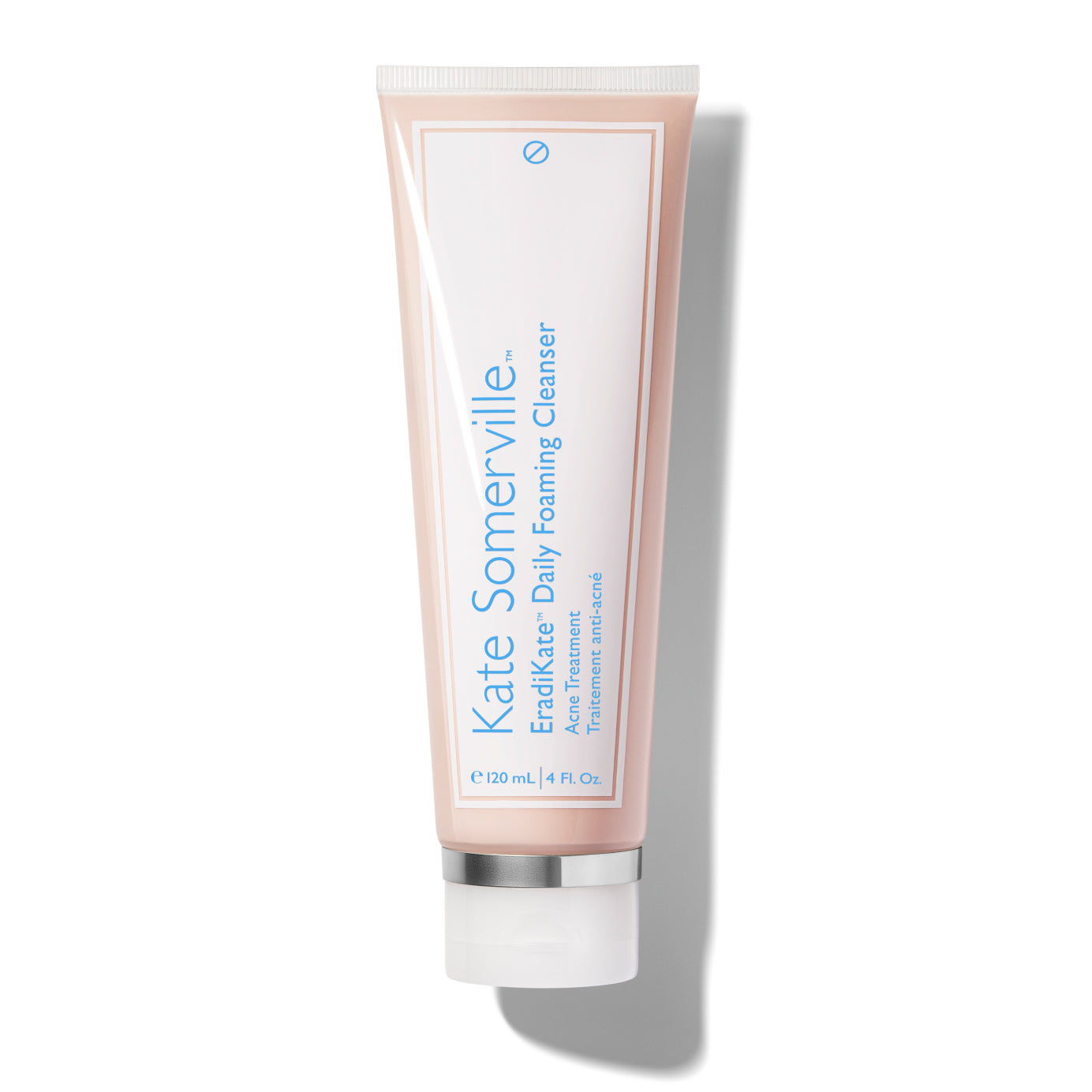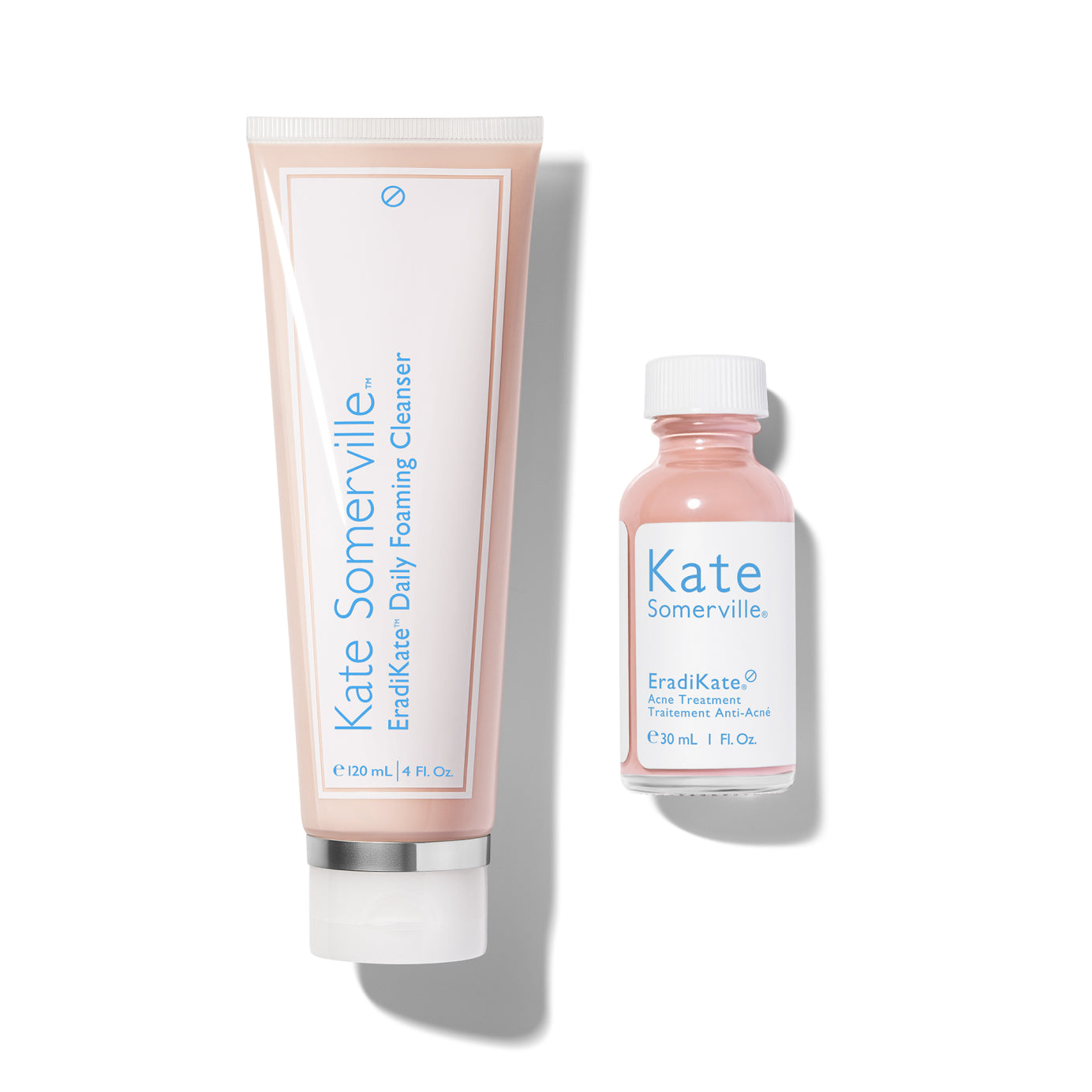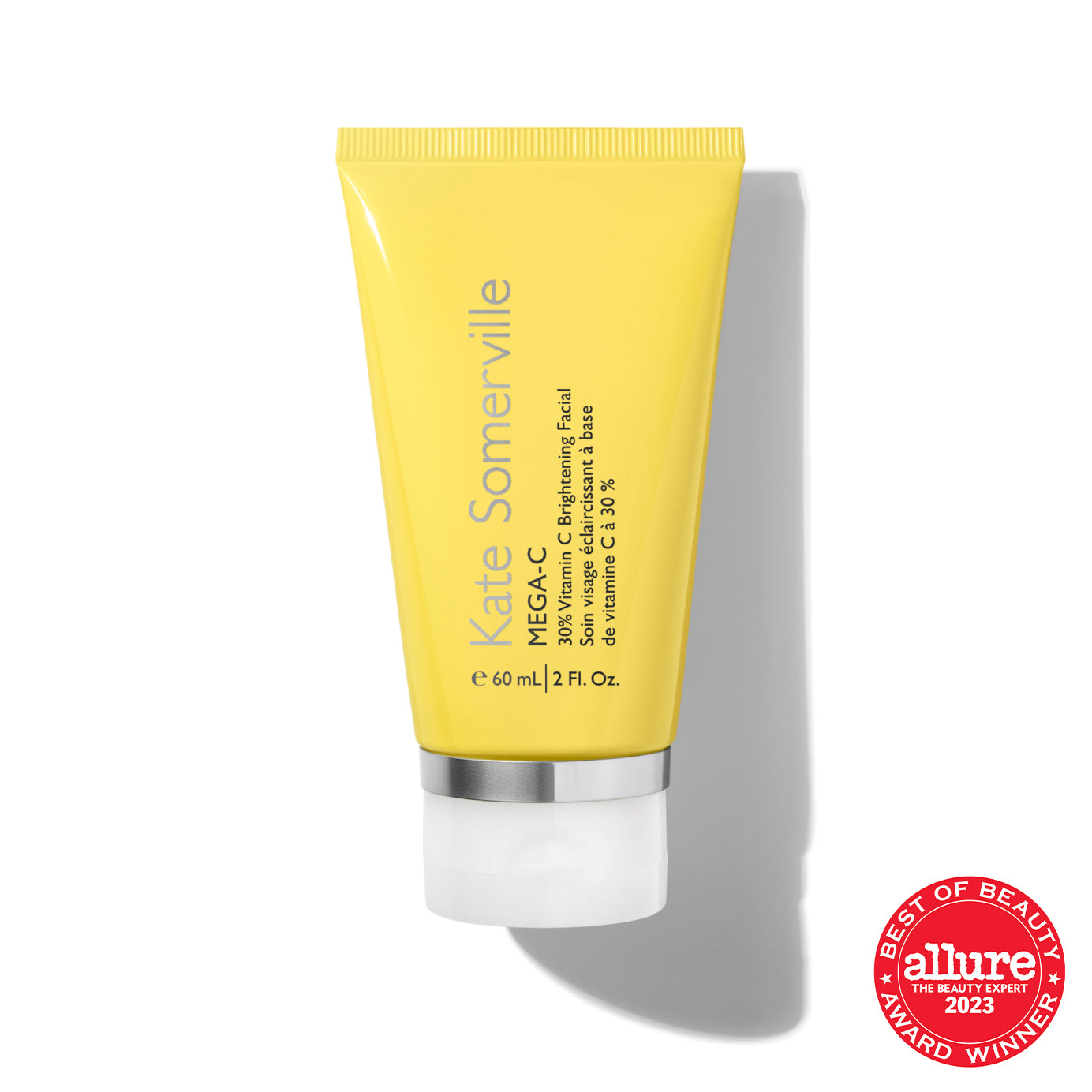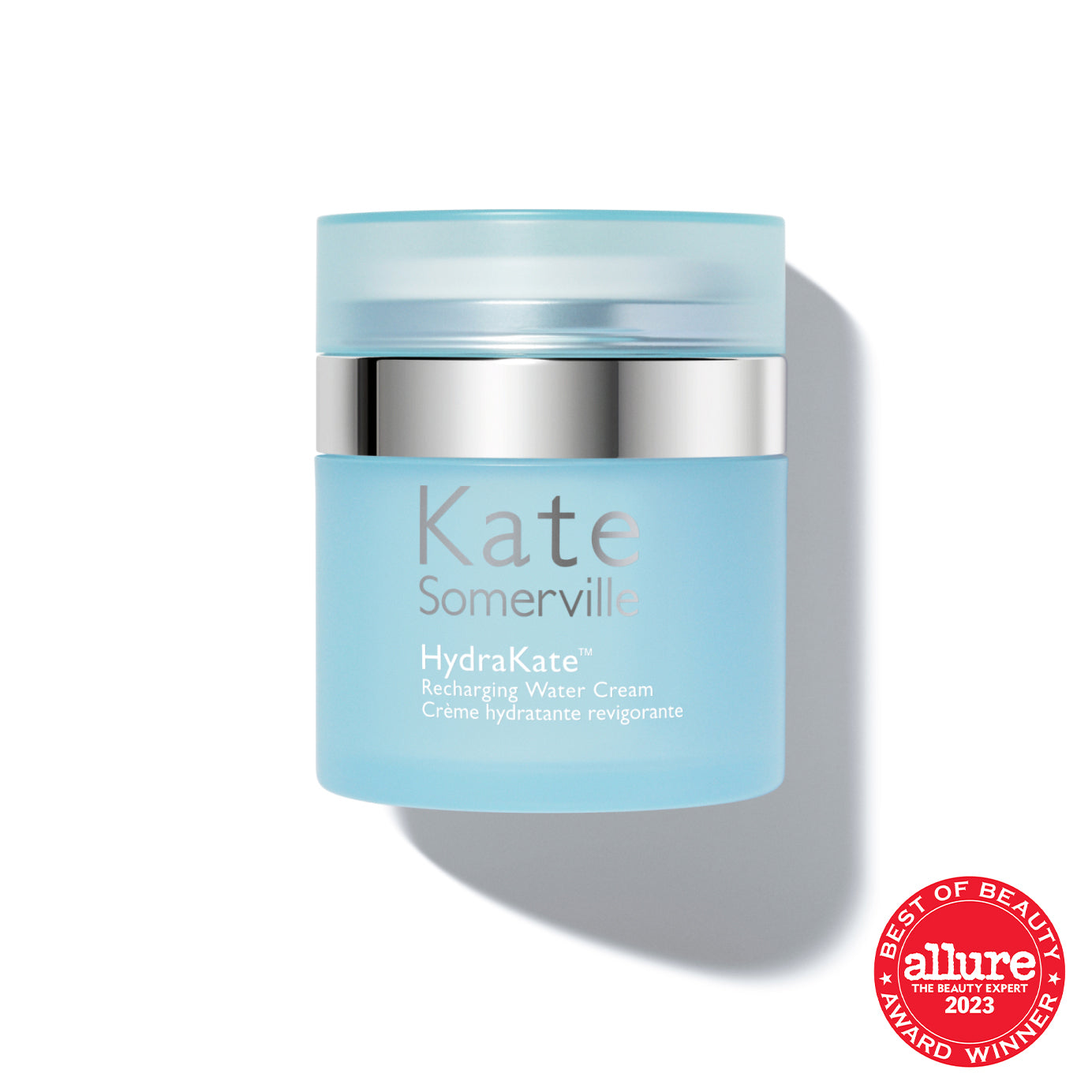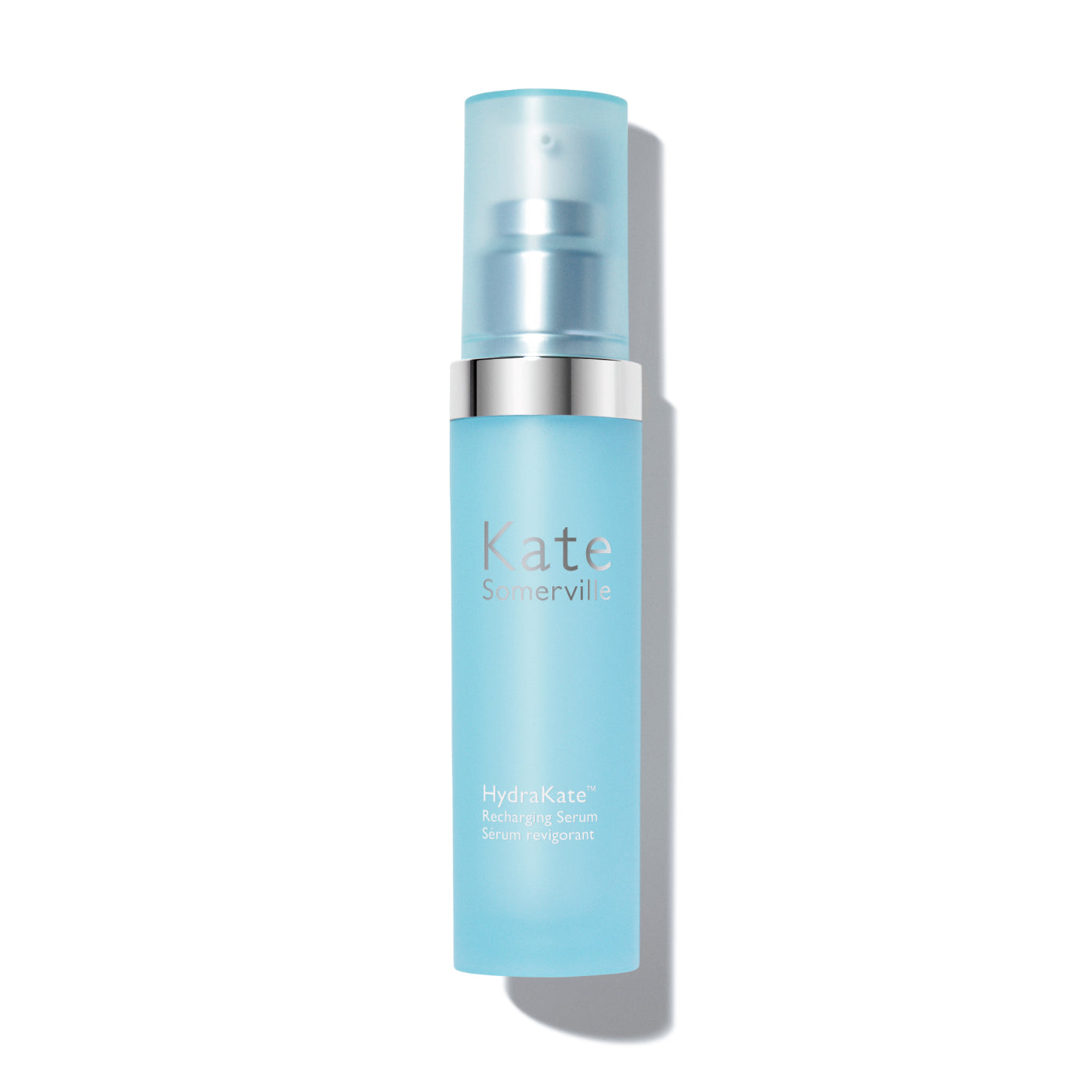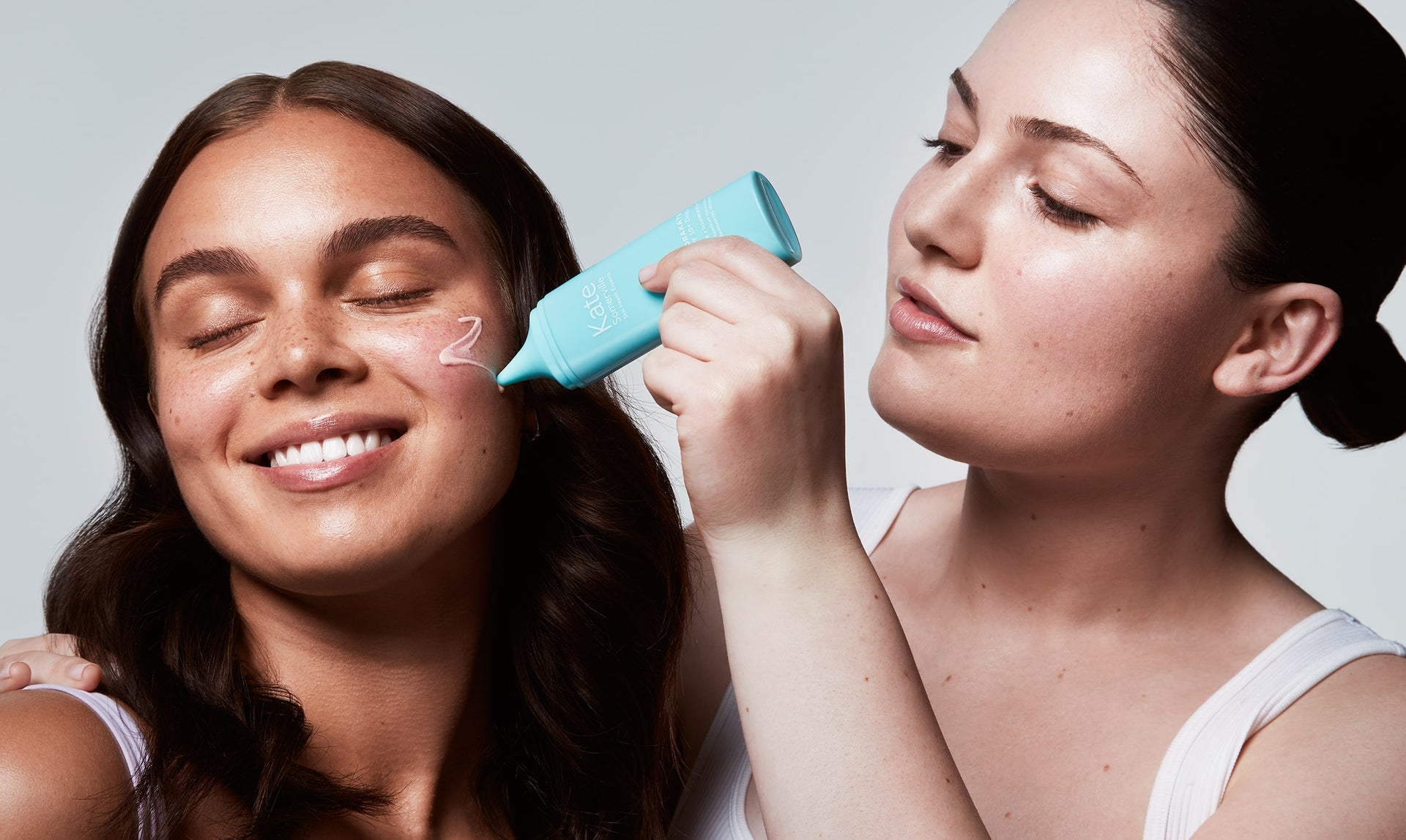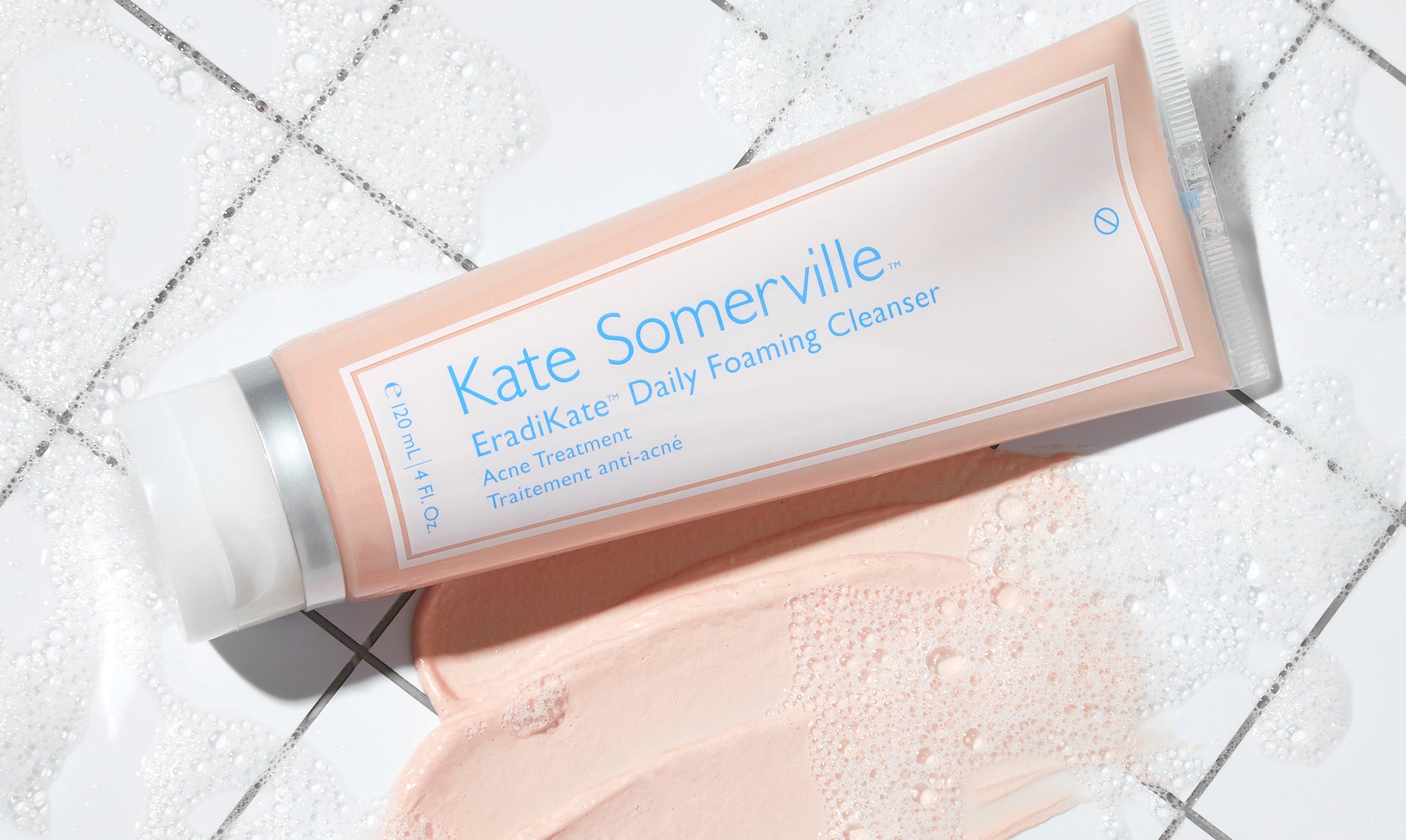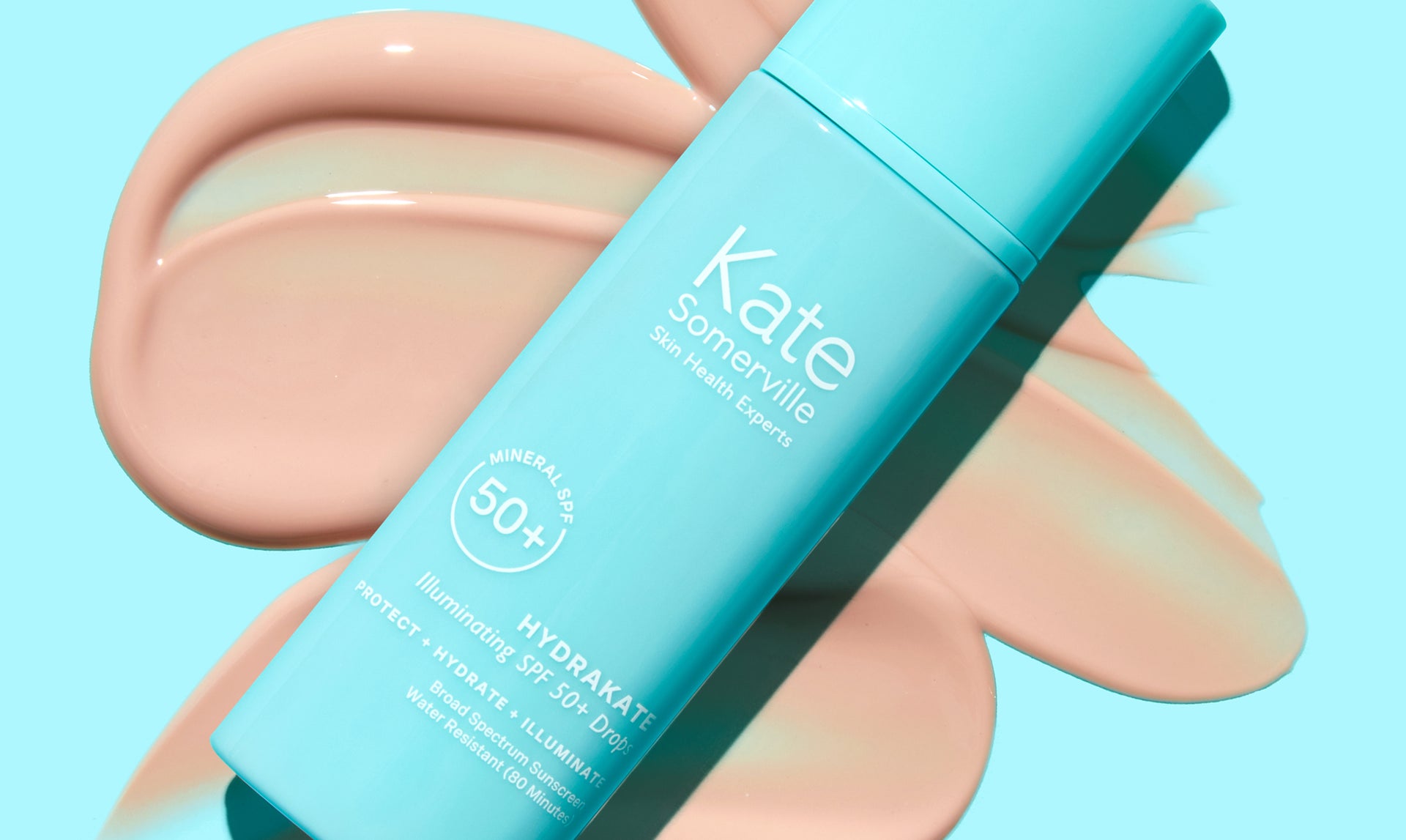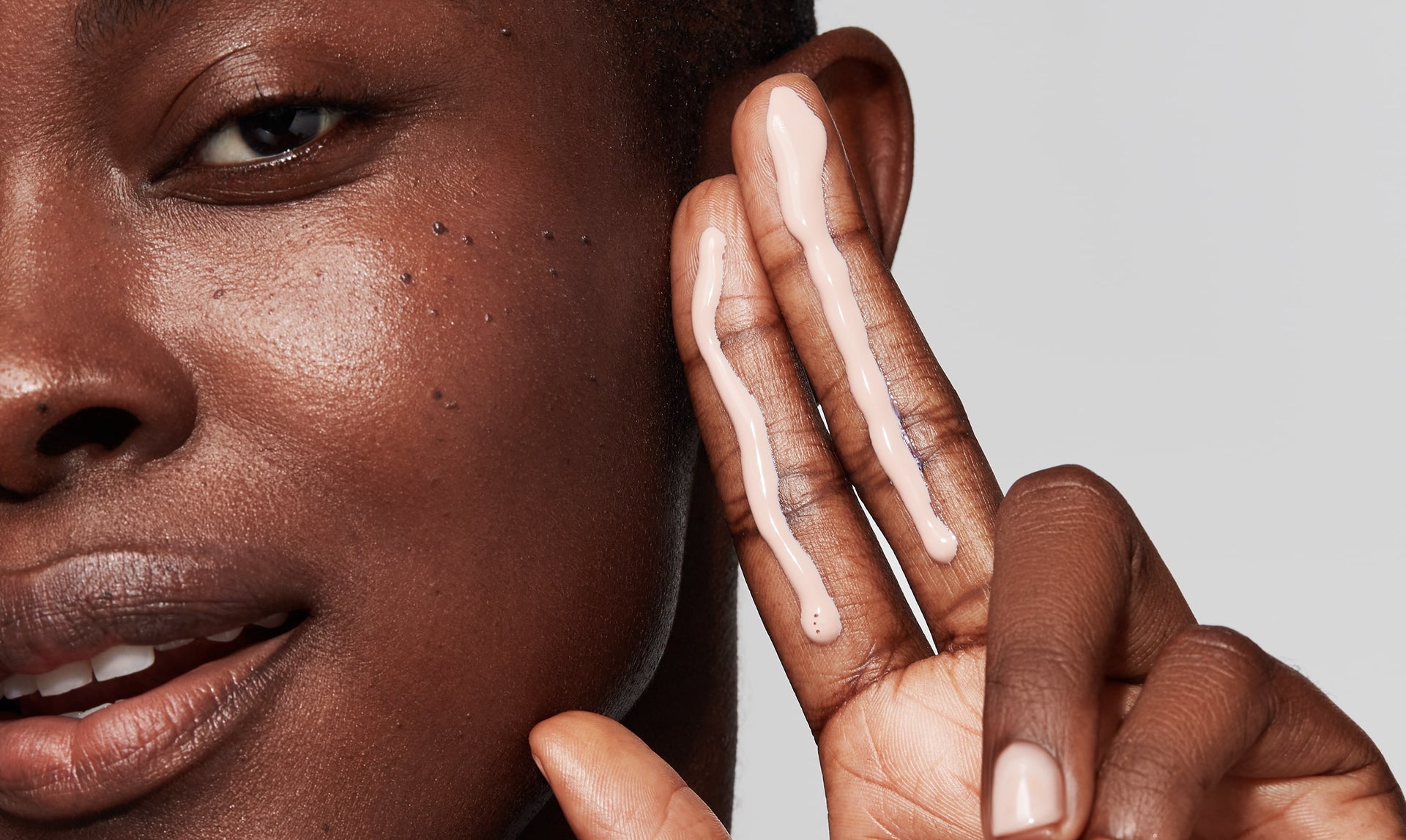While acne forms from clogged pores that are filled with dead skin cells, oil and bacteria[1], that’s not the only underlying cause of acne. Many other factors contribute to breakouts. A common culprit is food. Another is hormones. While the role food plays in acne is not entirely clear, the role hormones play is clear. Unbalanced hormones can cause and worsen the symptoms of many types of acne[2]. Eating certain foods can cause our body's hormone levels to change, and in turn, increase or decrease the amount of oil that our bodies produce. Understanding which foods work best with your body can help you better balance your hormone levels resulting in improved symptoms of acne and the prevention of breakouts. Read on to learn how a hormonal acne diet, along with efficacious acne treatment products, can help you combat your skin problems.
Foods That Help Hormonal Acne
If you're prone to hormonal breakouts, then you might want to study up on how to reduce acne with a healthy diet and which acne remedies will work best for you. Below, we’ve outlined specific foods that should be included in what we consider the best diet for hormonal acne— a diet that can help balance your hormones and help prevent this type of acne altogether.
Healthy Fats
If you suffer from dry skin, oily skin or anything in-between, then healthy fats might be the answer you've been searching for. Healthy fats like Omega-6 and Omega-3 Fatty Acids are the building blocks of your skin's cell membranes [1]. These fats help maintain healthy and hydrated skin, while also adding a softness to your complexion. Incorporate more healthy fats into your diet by sauteing your dishes in coconut oil, adding more avocados to your weekly menu, or incorporating wild-caught salmon into your next dinner recipe.
Cruciferous Vegetables
Looking for how to prevent pimples and balance out your estrogen levels? A plant-based diet consisting of leafy green vegetables like kale, arugula, and broccoli may do this trick! Rich in nutrients, these veggies are fantastic for your skin! Their sulfur-containing compounds work with your body to help clear up your complexion [2] and detox your skin of any gunk that may be causing clogged pores.
Probiotics
Establishing healthy habits, such as eating probiotics, is essential in maintaining good skincare. The good bacteria found in probiotic-rich foods like kombucha helps your digestive system eliminate toxins and excess hormones in the body [3]. Adding probiotics to your diet is easy! We recommend starting with fermented foods like sauerkraut, kimchi and kombucha. If fermented veggies don't match well with your taste buds, don't worry. There are plenty of over-the-counter probiotic supplements you can incorporate into your daily routine.
Foods to Avoid for Hormonal Acne
Dairy
The first step in a hormonal acne diet is to identify foods that you may have a sensitivity to. Dairy is a common culprit of food sensitivity. Plus, more and more studies show a link between dairy consumption and acne breakouts[3]. Even if you don't consume milk and cheese daily, the chances are that you're still consuming some dairy. Many processed foods contain dairy. If you are aiming for a dairy-free diet, be sure to check food packaging labels for an allergen statement. This will tell you if milk, butter or cheese is an ingredient.
Another easy way to achieve a dairy-free diet is by swapping regular cow’s milk for plant-based milk products. Many dairy-based products can easily be made from alternate sources like cashews, almonds, coconut, soy and even peas. Not only are these milk alternatives loaded with nutrients, but they taste great, too!
Refined Carbs & Sugar
Foods high on the glycemic index like pasta, sugary drinks and white bread may also fuel the production of acne on your skin. However, foods with low glycemic indexes like kale and whole grains have been shown to improve acne[4]. When searching for foods to help prevent acne, we suggest adding foods like quinoa, barley, spinach and lentils to your diet. You'll feel better and your skin might begin to clear up, too.
Fast Foods
It's no surprise that fast food is on the list of acne-triggering foods. Fast foods are often saturated in unhealthy oils and contain dairy-based, processed foods that are known to contribute to acne. By steering clear of fast foods and indulging in more homemade meals, you can help your body prevent acne from the inside out. Plus, making more meals at home means you get to choose the ingredients you consume. Choosing foods that contain healthy fats, probiotics and plenty of nutrients will not only help clear up current acne, but can also help your body prevent future breakouts by balancing your hormone levels.
Aiding the Hormonal Acne Diet with Treatment
When reviewing the best foods for a hormonal acne diet, it's important to remember that everyone’s body is different. While many people may experience benefits from making these healthy food swaps, dietary changes will not fully clear up acne breakouts on their own. Alongside a healthy diet, keeping your face clean, getting an adequate amount of sleep and applying topical acne treatments like the Eradikate® Acne Treatment are all ways that you can help prevent breakouts from forming.
If you follow a strict acne diet plan or have attempted other skincare methods and have not seen results, visit your dermatologist. They may be able to answer questions about a potential hormonal imbalance that is causing your type of acne. For now, we invite you to start incorporating the clean eating tips we’ve shared above to help clear up hormonal acne problems!
________________________________________
Sources
1. https://www.ncbi.nlm.nih.gov/pmc/articles/PMC6267444/
2. https://healthy.net/2000/12/06/sulfur-2/
3. https://perlmanclinic.com/the-benefits-of-probiotics/
4. https://www.ncbi.nlm.nih.gov/pmc/articles/PMC6611707/
5. https://www.ncbi.nlm.nih.gov/pmc/articles/PMC2585707/
